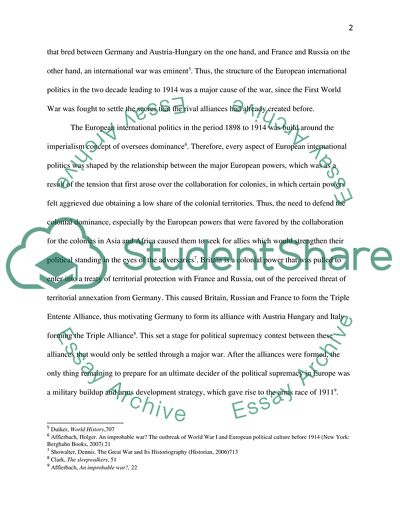Cite this document
(How the Structure of European International Politics Make a War Inevitable in 1914 Essay Example | Topics and Well Written Essays - 2250 words, n.d.)
How the Structure of European International Politics Make a War Inevitable in 1914 Essay Example | Topics and Well Written Essays - 2250 words. https://studentshare.org/history/1853079-to-what-extent-did-the-structure-of-european-international-politics-make-a-war-inevitable-in-1914
How the Structure of European International Politics Make a War Inevitable in 1914 Essay Example | Topics and Well Written Essays - 2250 words. https://studentshare.org/history/1853079-to-what-extent-did-the-structure-of-european-international-politics-make-a-war-inevitable-in-1914
(How the Structure of European International Politics Make a War Inevitable in 1914 Essay Example | Topics and Well Written Essays - 2250 Words)
How the Structure of European International Politics Make a War Inevitable in 1914 Essay Example | Topics and Well Written Essays - 2250 Words. https://studentshare.org/history/1853079-to-what-extent-did-the-structure-of-european-international-politics-make-a-war-inevitable-in-1914.
How the Structure of European International Politics Make a War Inevitable in 1914 Essay Example | Topics and Well Written Essays - 2250 Words. https://studentshare.org/history/1853079-to-what-extent-did-the-structure-of-european-international-politics-make-a-war-inevitable-in-1914.
“How the Structure of European International Politics Make a War Inevitable in 1914 Essay Example | Topics and Well Written Essays - 2250 Words”. https://studentshare.org/history/1853079-to-what-extent-did-the-structure-of-european-international-politics-make-a-war-inevitable-in-1914.


